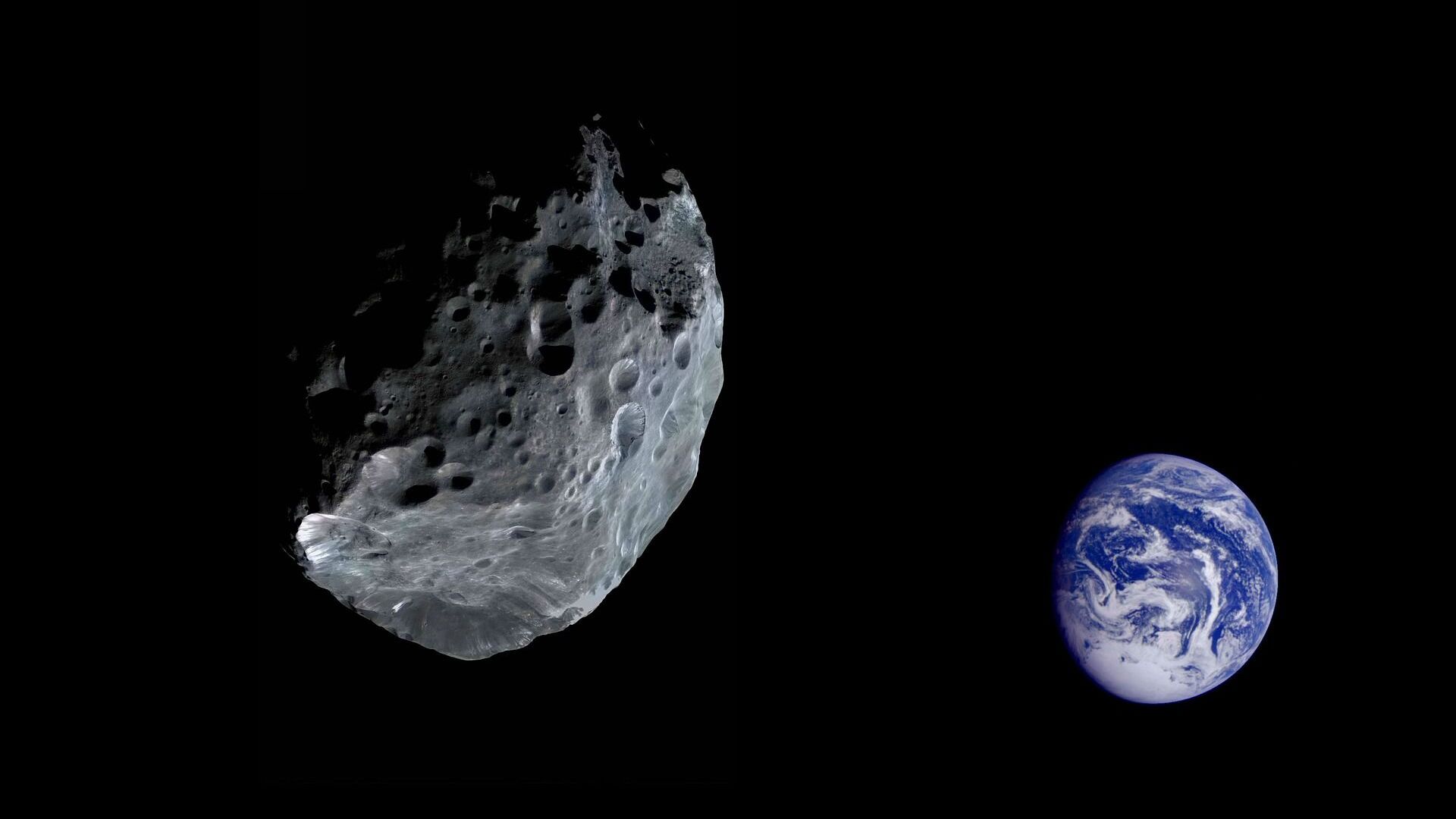https://sputnikglobe.com/20210820/bigger-than-burj-khalifa-potentially-hazardous-asteroid-to-pass-by-earth-on-saturday-1083669837.html
Bigger Than Burj Khalifa: 'Potentially Hazardous' Asteroid to Pass by Earth on Saturday
Bigger Than Burj Khalifa: 'Potentially Hazardous' Asteroid to Pass by Earth on Saturday
Sputnik International
NASA is keeping a close eye on 1,000 space rocks that are "potentially hazardous" to our planet. 20.08.2021, Sputnik International
2021-08-20T13:10+0000
2021-08-20T13:10+0000
2021-08-20T13:10+0000
newsfeed
world
nasa
asteroid
earth
solar system
https://cdn1.img.sputnikglobe.com/img/107906/91/1079069149_0:87:1920:1167_1920x0_80_0_0_6958f452cc50801de0e563e73dafb478.jpg
The asteroid known as "2016 AJ193," classified as "potentially hazardous" by NASA, will whizz past Earth on Saturday, 21 August. The 1.4 km-wide space rock – which is traveling at 94,208 km per hour – will pass within 3,427,445 km of Earth.The asteroid will approach our planet at 11:10 am ET (8:40 pm IST and 3:10 pm GMT).NASA will observe the asteroid from 20 to 24 August using radar. It's 1.5 times the size of the Burj Khalifa, more than three times the size of the Empire State Building, and over 4.5 times the size of the Eiffel Tower – it was spotted in January 2016 by the Panoramic Survey Telescope and Rapid Response System (Pan-STARRS) facility, which is part of Hawaii’s Haleakala Observatory.Every 5.9 years, it orbits the Sun – as it travels towards Earth’s orbit it shoots off in Jupiter's direction. This visit will be 2016 AJ193’s closest approach to Earth for at least for the next 65 years.NASA is currently tracking over 26,000 near-Earth asteroids, while over 1,000 are considered potentially hazardous.
earth
Sputnik International
feedback@sputniknews.com
+74956456601
MIA „Rossiya Segodnya“
2021
Sushmita Panda
https://cdn1.img.sputnikglobe.com/img/07e5/05/12/1082926186_0:0:2048:2048_100x100_80_0_0_4474d0d7e27a36878eb8727832be74b4.jpg
Sushmita Panda
https://cdn1.img.sputnikglobe.com/img/07e5/05/12/1082926186_0:0:2048:2048_100x100_80_0_0_4474d0d7e27a36878eb8727832be74b4.jpg
News
en_EN
Sputnik International
feedback@sputniknews.com
+74956456601
MIA „Rossiya Segodnya“
Sputnik International
feedback@sputniknews.com
+74956456601
MIA „Rossiya Segodnya“
Sushmita Panda
https://cdn1.img.sputnikglobe.com/img/07e5/05/12/1082926186_0:0:2048:2048_100x100_80_0_0_4474d0d7e27a36878eb8727832be74b4.jpg
newsfeed, nasa, asteroid, earth, solar system
newsfeed, nasa, asteroid, earth, solar system
Bigger Than Burj Khalifa: 'Potentially Hazardous' Asteroid to Pass by Earth on Saturday
NASA is keeping a close eye on 1,000 space rocks that are "potentially hazardous" to our planet.
The asteroid known as "2016 AJ193," classified as "potentially hazardous" by
NASA, will whizz past Earth on Saturday, 21 August. The 1.4 km-wide space rock – which is traveling at 94,208 km per hour – will pass within 3,427,445 km of Earth.
The asteroid will approach our planet at 11:10 am ET (8:40 pm IST and 3:10 pm GMT).
NASA will observe the asteroid from 20 to 24 August using radar. It's 1.5 times the size of the Burj Khalifa, more than three times the size of the Empire State Building, and over 4.5 times the size of the Eiffel Tower – it was spotted in January 2016 by the Panoramic Survey Telescope and Rapid Response System (Pan-STARRS) facility, which is part of Hawaii’s Haleakala Observatory.
Every 5.9 years, it orbits the Sun – as it travels towards Earth’s
orbit it shoots off in Jupiter's direction. This visit will be 2016 AJ193’s closest approach to Earth for at least for the next 65 years.
NASA is currently tracking over 26,000 near-Earth asteroids, while over 1,000 are considered potentially hazardous.



